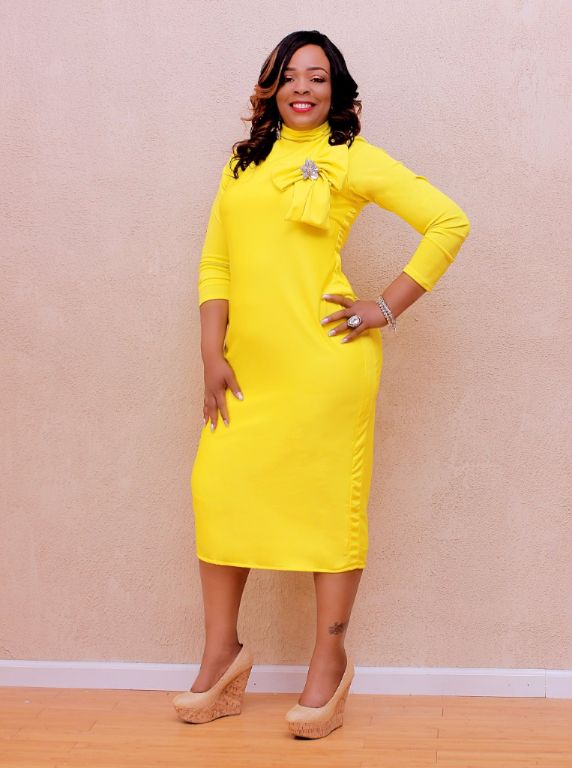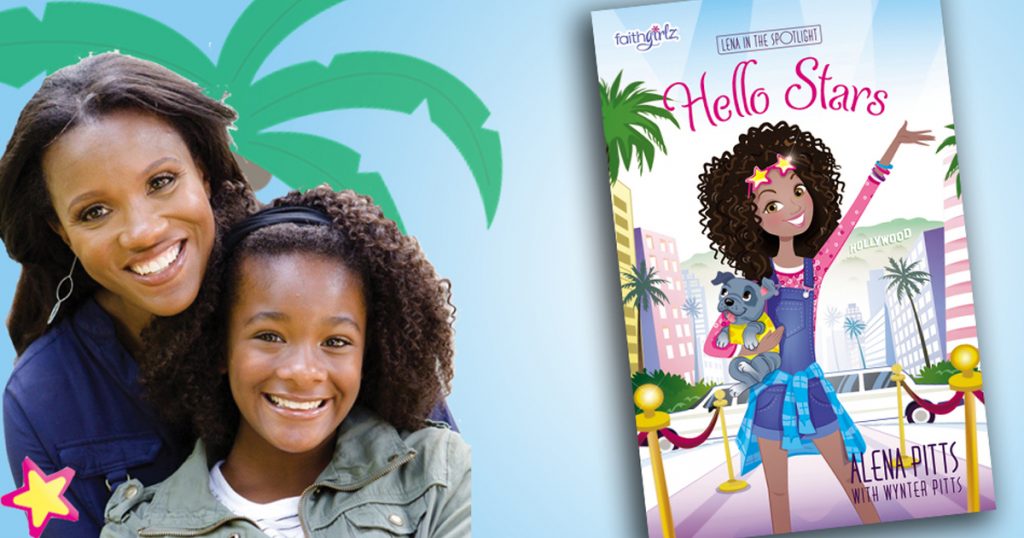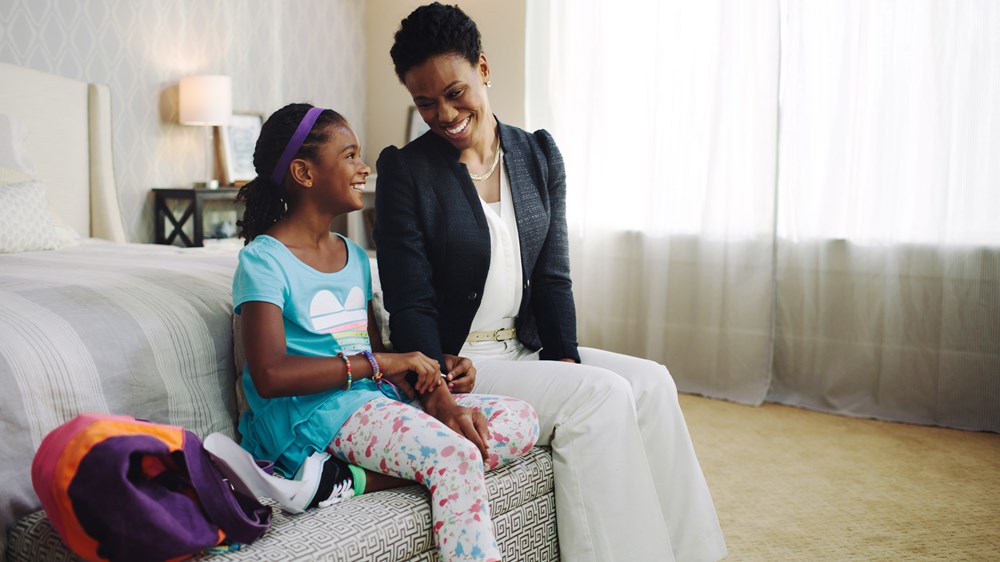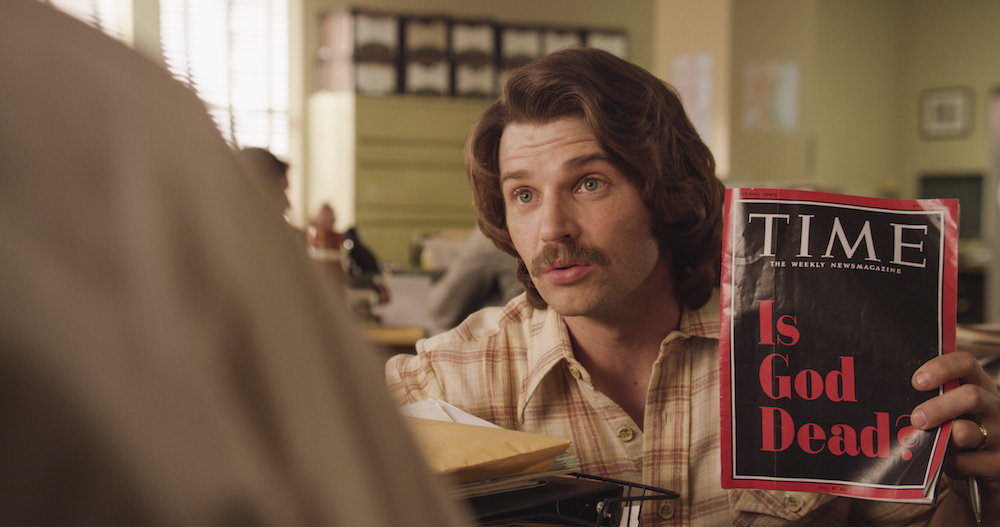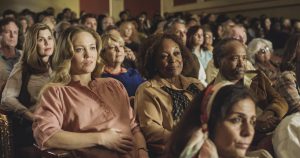
Hello World,
Although mental health issues within the black community is not as much of a taboo subject as it once was, I think we can all agree that there is still more work to be done. As a storyteller, I’m always drawn into issues through a great story, and Dr. Sheila D. Williams, author of “My Mother’s Keeper,” has a great story addressing mental health.
 She was the one who gave birth to her, became her first friend and encouraged her to try school that scary kindergarten year, which led her to a lifelong love of education. Yet where author Dr. Sheila D. Williams learned most from her mother was during her mother’s battle with clinical depression and later diagnosis of multiple sclerosis. Her autobiography, entitled “My Mother’s Keeper,” chronicles Sheila’s sometimes dysfunctional but endearing friendship with her mother, which endured a parental role reversal when her mother’s mental health issues forced Sheila to be responsible for herself at age ten. Sheila later details her memories of still seeing the embodiment of the Proverbs 31 woman within her mom, as she later became her mother’s primary caregiver. “My Mother’s Keeper ” is a moving tribute to the power of a mother-daughter bond that defied the odds, both externally and internally, and thrived in love until the end.
She was the one who gave birth to her, became her first friend and encouraged her to try school that scary kindergarten year, which led her to a lifelong love of education. Yet where author Dr. Sheila D. Williams learned most from her mother was during her mother’s battle with clinical depression and later diagnosis of multiple sclerosis. Her autobiography, entitled “My Mother’s Keeper,” chronicles Sheila’s sometimes dysfunctional but endearing friendship with her mother, which endured a parental role reversal when her mother’s mental health issues forced Sheila to be responsible for herself at age ten. Sheila later details her memories of still seeing the embodiment of the Proverbs 31 woman within her mom, as she later became her mother’s primary caregiver. “My Mother’s Keeper ” is a moving tribute to the power of a mother-daughter bond that defied the odds, both externally and internally, and thrived in love until the end.
See my interview with Dr. Sheila D. Williams, who is a mental health therapist, author, motivational speaker and certified national trainer/educational consultant, below.
1.You were the primary caretaker for your mother from the age of 10 until she passed away years ago. Did you recognize the symptoms of her clinical depression? Is clinical depression in any way hereditary?
Yes, from the age of 10 years old, there was a role reversal that occurred between my mother and me. I found myself being more responsible for preparing my own meals, doing my own laundry, styling my hair, etc., often without the assistance of my mother. I was always a bit more mature for my age, however at 10 years old, it was a very pivotal point in our relationship in which I realized that it wasn’t because my mother didn’t want to assist me; it was because she mentally and physically could not. I found myself checking on her and making sure she was okay; this became my top priority.
At the age of 10, I did not know it was clinical depression, nor did she or my father. We simply knew that my mother was not well, and that she most often was fragile mentally and emotionally. Because her mental illness was inaccurately diagnosed, she associated the way she felt with a medical condition of some sort, and was treated with muscle relaxers, pain relievers, etc. It wasn’t until I was in my early 20s that she was diagnosed accurately.
Research indicates that there is a hereditary component to mental illness. However, environmental factors — life stressors, inability to cope, lack of strong support system, etc. — these external factors seem to be more influential on the likelihood a person will experience mental illness at some point in their lives.
2.Why did you write your book “My Mother’s Keeper” and what type of feedback have you received?
I wrote “My Mother’s Keeper” as a memoir for my mother and her legacy. Because she felt as if she were different, that she didn’t fit in, she was often embarrassed and ashamed. She didn’t feel that she was good enough. She thought that no one would care to hear her story. I always worked to dispel her insecurities, but it continued throughout her life. Before she passed away, she and I discussed me telling her story. The story of her life is an integral component of my life and my journey. I wrote “My Mother’s Keeper” not only as a memoir, but as an autobiography and introduction to my life’s story. I chose to be transparent about my life and mental illness, to not only bring hope and healing to anyone who is dealing with mental illness or any other life situations or circumstances, but also to those who are experiencing any other life situations or circumstances.
In your book, you stated that you were told by a guidance counselor in high school that college was “not for you.” How did you move past that negative critique and continue your education? 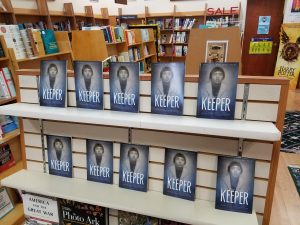
Throughout my entire life, I’ve always been a good student. I worked to excel in education and received numerous awards and recognition for my exceptional academic standing and participation in extracurricular activities and community service. With this track record, I always knew I wanted to attend college. Although I wasn’t sure how I’d pay for college, it was something I had planned to do since I was in middle school. When I was in 10th grade, the conversation about plans after high school was discussed with every student. After several meetings with my guidance counselor, I informed him that I had aspirations and intentions of attending college. He encouraged me to sign up to take the ASVAB military entrance exam and told me that he felt that college was ‘not for me.’ He never indicated why he felt this way, but clearly it could not have been because of my academic standing or my drive and determination.
Initially, I was devastated by this, but that devastation quickly turned and it became fuel for me to make my goal of attending college a reality. Not only did I want to make attending college a reality, I wanted to finish college, then complete an advanced degree and not have student loans once I finished. I was able to accomplish all of these goals. I now am very thankful that I had that experience as it increased my motivation and my ability to persevere. I exceeded my own expectations.
3. As of this month, Georgia Governor Nathan Deal formed the Commission on Children’s Mental Health to study Georgia’s approach to providing mental health care. How do you feel about this news, and what do you hope the commission will address?
I am very excited to hear of the Governor’s Commission on Children’s Mental Health. In my experience, I often find that the mental health of children is often forgotten. It is important to understand that although children are resilient, they are the product of their environment, their circumstances, and their experiences. If they are in a home where there is domestic violence, verbal abuse, or even financial difficulties, this can have a negative impact on the child’s self-esteem, their ability to effectively communicate, their self-perception and the list goes on. If you compound these stated issues with having a parent or loved one who suffers from mental illness, it is an even much more critical case. If a parent suffers from mental illness, unless they are effectively managing their mental illness and receiving treatment, it could negatively affect their ability to care for their child. Much as was the case with my mother.
When a child is being raised by a parent who has a mental illness that is untreated, undiagnosed, and/or one who is stigmatized and embarrassed to get help, it often leaves the child in a state of confusion and insecurity, and with feelings of despair. This ultimately could lead to depression and other forms of mental illness in the child. It is my hope that the Governor’s Commission will address the whole child, taking into consideration that although the child himself may not have a mental illness, they may be dealing with adult responsibilities at home, which may include a parent or caregiver that suffers from mental illness — all of which may negatively affect that child’s emotional and psychological well-being.
4. As a Christian, how does your Christian faith affect your career in the mental health field?
As a Christian, my belief is that we are all here for a purpose. I believe that my purpose here is to change lives and create positivity in a world that is often very negative. As a proponent and an advocate for mental health, I feel very blessed to have been born to my mother (and my father). The experiences we have throughout life can at times be very challenging; however, I believe that with each challenge there is also opportunity. As a very young child, I didn’t understand what was going on with my mother.
By the age of 10, I realized my mother was different and that her difference made her even more beautiful. Later in life she was also diagnosed with multiple sclerosis, which compounded her disability from being one that couldn’t be seen (depression) to one that physically was quite visible with her fingers, arms and legs all contracted. Even so, she was still beautiful. I came to realize the beauty in even my challenges and imperfections. I believe that this is what life is all about.
My Christian faith lets me know that although we enjoy personal growth and accomplishments, our true joy and life’s blessings are obtained when we find ways to give to others; that is what brings me the most satisfaction. My experiences, both personal and professional, with mental illness have been a gift. The knowledge I’ve obtained has been a blessing. It is my purpose to further educate, motivate and empower others to silence the shame that is associated with mental illness and to embrace our differences, no matter what those differences may be.
5. How prevalent is mental illness in the black community, and what can the black church do to support mental health awareness and treatment?
Within the black community, the subject of mental illness is still very taboo, unfortunately. There are many people within the black community who have undiagnosed mental illness or have been diagnosed with a mental illness, but chose not to take medication or get therapy. These individuals, unfortunately, are suffering in silence. By failing to see a mental health professional, to follow up with treatment or refusing to take prescribed psychotropic medications, their mental illness not only affects them, but it affects their families, loved ones and the entire community.
As a Christian woman, I have a strong faith, and believe in God and the power of prayer. However, at times in the black church we fail to acknowledge and expound upon the importance of physical and mental health. Although prayer and motivation are important, and I personally know the benefits of each, it is also important for the black church to encourage and promote mental health awareness. We often seek the help and advice of medical physicians, but we fail to seek that same help and assistance from mental health professionals when our emotional and psychological well-being is in jeopardy. I feel it a responsibility of all of us to promote and encourage 360 degrees of wellness, and this includes our mental health.
6. What are your favorite topics to speak on as a motivational speaker and why?
My favorite speaking topic is The Transformational Mindset. I truly enjoy speaking on this topic because I am a firm believer and it is my motto that ‘Our Thoughts Become Our Reality.’ Regardless of what age, gender, culture or religious beliefs my audience is, this applies to everyone. We often get accustomed to thinking a certain way, which leads us to believe certain things. These belief systems (which sometimes can be flawed or misconceptions) tend to cause us to speak and behave a certain way. By speaking and acting upon misconceptions or negative beliefs, we hinder productivity and the likelihood of personal and professional growth.
The Transformational Mindset is a way of life. I began my journey of transformation at 10 years old. Rather than seeing my mother’s differences, her mental illness, etc., as a weakness, I saw it as a strength. I embraced those differences and used them to change my insecurities into strengths. I was able to see my mother’s mental illness as a blessing and an opportunity to learn more about who I am, embrace that person wholeheartedly and be a blessing to others.
7. What has been your biggest victory as a mental health therapist?
During high school, I wanted to be an astronaut and was very good in math and decided to major in it once I got to college. However, with the symptoms my mother exhibited, they didn’t seem to match the diagnoses that the physicians were giving her. I started to read up on her symptoms on my own, as I was always a bit of a researcher, even at an early age. The study of psychology not only sparked my interest, but also educated me on many of the emotions I had myself. It was through these readings and research that I decided to change my major to psychology rather than math. It was less than one year after I graduated with my BA in psychology that my mother finally was correctly diagnosed with clinical depression.
After completing my BA in psychology, I went on to pursue and complete my MA in mental health counseling. In addition, I earned a Ph.D. in education and leadership. I’ve worked for many years as a mental health therapist and counselor. Having the educational knowledge, the professional experience and personal experience of caring for my mother who suffered from mental illness has all been a blessing. It was destined that this would be my career path.
My biggest victory is not only being able to survive the many challenges I’ve faced in my life, but to be able to thrive while doing it. Everything that happens happens for a reason. I believe that my experiences were not only lessons for me, but what I’ve learned from those experiences has afforded me the opportunity to use those lessons in a positive way to assist others on their journeys as well. This has been the biggest victory of all.
If you would like more information about Dr. Sheila D. Williams, please go to her website drsheiladwilliams.com.
Any thoughts?

